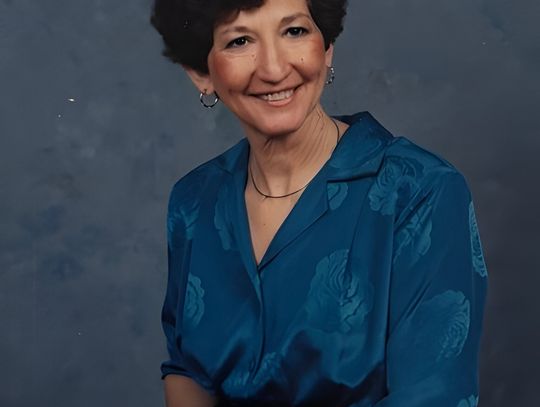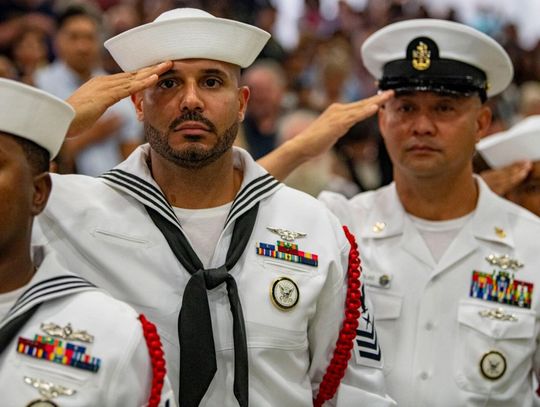It would be difficult to argue that the last year has been tough to deal with, but for the children and young adults in our community, the trauma has been severe and counselors at local schools are beginning to see the impacts manifesting daily.
In trying to address the impacts to our youth, Churchill County High School and Middle School counselors are grateful for a partnership begun in January of 2019 between the district and the University of Nevada Counselor Education Program.
“I am so grateful for them right now,” said Kaylene Cole-Tudor, a counselor at the Middle School. “I met with a student today who is dealing with a lot of past trauma and I feel like he would benefit so I’ve sent the paperwork home to the parents.”
Ken Coll is the supervisor of the UNR students, former Dean of the College of Education, and currently serving on special assignments to the Counselor Education Program. He said that the idea of the partnership was first floated in the fall of 2018 as a way to provide social/emotional education for students and meet what had been identified as a critical need in the community. The program began in January of 2019, with two third/fourth-year counseling students one assigned to the high school and the other to the middle school, and seeing immediate success.
“Right away they were busy, the youth and parents thought it was great,” said Coll. Having the counseling offered on campus has been a huge benefit to students and families, doing away with many of the barriers that have traditionally kept families from receiving counseling services. Often transportation to appointments is a problem for families, and when students do have the opportunity for counseling, they often have to miss a day of classes to see counselors located outside the community. This program allows students to stay on campus and maximize class time.
Once COVID hit the program did suffer some setbacks, according to Coll. Counseling was moved to virtual appointments which were challenging, but services did continue. “The staff was all really collaborative, and it speaks a lot to the superintendent and your principals who really value social-emotional issues and providing mental health care.”
There are now four counselors serving the district, traveling together in a car-pool from UNR, two at the high school, and two at the middle school. When a student is identified by counselors for referral, parents are contacted for their consent and involvement before the plan is developed. Coll said the students are responding very well to the college counselors, “Kids want to meet with them, they’re closer in age and feel that they can relate well to their situations.” He said the counseling interns are intensely supervised and each case is reviewed and discussed at length.
Coll said often the biggest challenge for a student is figuring out how to get help. “If your child wants to talk to someone, to see a counselor, that doesn’t mean some horrible thing.” He said the counseling is a very easy process, and not directive. “Our counselors are trained to help students sort through their situation, to be supporting and empowering.” Coll also said the counselors contact parents right away if there is a serious issue, and students are urged to talk to their parents, often learning skills on how to communicate with parents and adults.
Casey Ritenour, a counselor at the high school said the district recently took a Needs Assessment survey at the high school, with 140 students responding. “There is a lot of traumatic stress,” she said. “One of the highest needs was grief, loss, and trauma, but the highest was the need for stress management, our kids are struggling. We have a lot of kids who did lose family members so it is presenting in the school setting so the more social-emotional support we can give the kids access to the better.” She said realistically it would be better to have more school counselors. “Right now, the UNR interns are stepping up and helping us and we appreciate it. We are seeing improvement.”
According to Doctor Summer Stephens, Superintendent of the Churchill County School District, the grants funding the counseling partnership are awarded through the Marijuana Tax Relief grant and the Social Services Indigent Fund/Mental Health Grant.
The RU92 Marijuana Tax Revenue is received annually in March each year by Churchill County. This year the amount was nearly $88,000 which is awarded by Churchill County Social Services and approved by the County Board of Health to fund collaborative partnerships each year that focus on teen pregnancy, mental and health wellness and reduction in substance abuse.
Social Services enters into agreements with partner agencies on behalf of the Board of Health, monitors the progress, completes the funding reimbursements, and reports to the board on the progress of the grant programs.
Awards this year went to New Frontier Treatment Center, Churchill Community Coalition, and the school district for the Mental Health program.
“This is another resource we have to offer parents and serve our students,” said Cole-Tudor.
Ritenour agreed, “we need to get more kids involved.”









































Comment
Comments